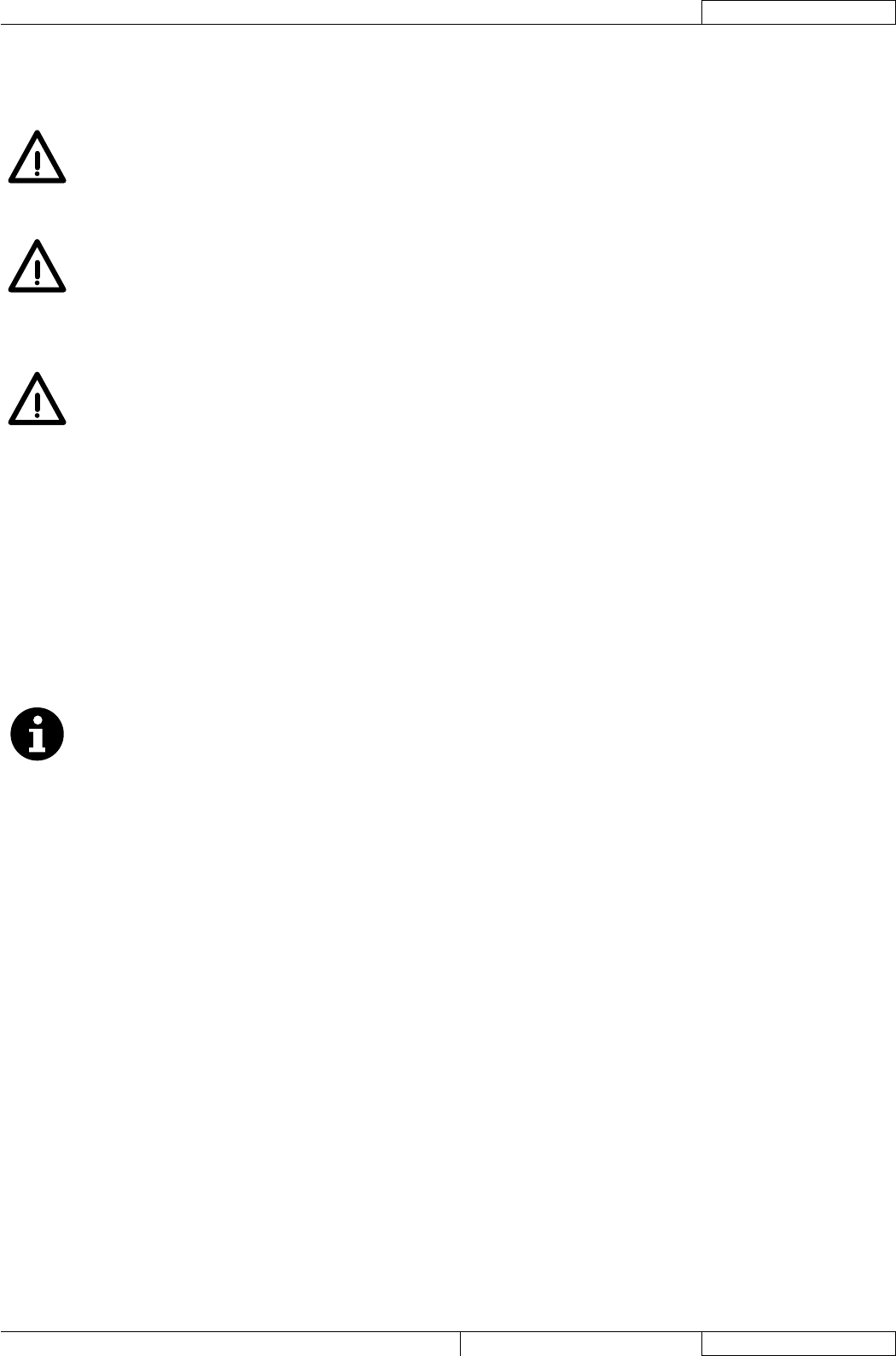
USER MANUAL
ENGLISH
RS 2200 33019476(3)2010-02 A
31
Start the engine as shown in the Diesel Engine Start paragraph.5.
Turn the accelerator lever (2, Fig. D) to idle.6.
Turn the potentiometer (12, Fig. E) to idle, by turning it fully counter-clockwise.7.
Enable the hydraulic system by pressing the lower part of the switch (31, Fig. E).8.
WARNING!
When the hydraulic system is enabled, when pressing the switch (31, Fig. E) the engine speed automatically
reaches 1,100 rpm.
Pay careful attention when driving because the machine accelerates all of a sudden.
When turning the potentiometer (12, Fig. E) clockwise, the engine speed can be adjusted up to 1,850 rpm.9.
CAUTION!
If 1,950 rpm are exceeded when working, a safety system stops the accessory system and the rpm number (1,
Fig. H) fl ashes to warn about the fault.
Turn on the water pump by pressing the upper part of the switch (28, Fig. E).10.
Pick up the water gun with the hose (1, Fig. O) on the left side of the hopper (2, Fig. G).11.
Connect the water gun hose (2, Fig. O) to the intake on the rear side of the machine (3).12.
WARNING!
Protect body parts (eyes, hair, hands, etc.) properly, when performing cleaning procedures using compressed
air or water gun.
Use the water gun by pressing the relevant trigger (5, Fig. O).13.
After using the water gun, deactivate the water pump by pressing the upper side of the switch (28, Fig. E) and press the trigger 14.
(5) to drain the system.
After draining, perform steps 4 to 13 in the reverse order.15.
DUST CONTROL SYSTEM WATER TANK FILLING/EMPTYING
When necessary, fi ll/empty the dust control system water tanks (2 and 3, Fig. F) and (5 and 6, Fig. G) as shown below.
Engage the parking brake (3, Fig. D).1.
Turn off the engine, by turning the ignition key (6, Fig. D) counterclockwise, to the end of stroke, then remove it.2.
When near an hydrant, proceed as follows:3.
Pick up the fi ller hose (40, Fig. G) from its housing and connect it to the hydrant.•
Open the hydrant valve and fi ll the tanks.•
When near a water plug, use a hose and fi ll the tanks through the fi ller plugs (10, 11, 12, 13, Fig. G).4.
If the tanks (2 and 3, Fig. F) and (5 and 6, Fig. G) must be emptied, use the drain plugs (8, Fig. F) and (9, Fig. G).5.
NOTE
The tanks are connected.


















